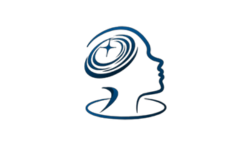Most people are frightened of spiders, heights, or small spaces. But when the fear is extremely strong and interferes with daily life, it is a phobia. Fobi exists and is widespread, but the good news is that it can be cured.
KEY TAKEAWAYS:
- Fobi is intense worry about harmless objects, like spiders or heights.
- Specific, social, and agoraphobia are the primary types.
- Treatment includes medical, drug, and relaxation techniques.
- Painful experiences or family history can cause phobias.
- Individuals with a phobia can lead a normal life once treated.
What is a phobia, exactly?
A phobia is a deep fear of something that in most examples does not give any real danger. But for a person suffering from a phobia, the fear looks very real and heavy.
Fobi has three primary categories:
- Specific phobia: Fear of some objects or conditions such as snakes, needles or flying.
- Social fear (social anxiety): Fear of social situations where a person may feel embarrassed or justice.
- Egorafobia: Fear of being in situations where it can be difficult to leave as crowded areas or public transport.
These worries can result in physical responses like sweating, shaking, breathing difficulties, or nausea.
Also Check: Is Type A Personality Stressful?
Common Types of Phobias
Phobias are about anything, but some occur more frequently than others. These are some:
- Aranhaphobia – spiders
- Altitude
- Clophobia – close or fear of small spaces
- Ophidiophobia – snakes
- Tripanophobia – Fear of needles
- Aromobia – fear of escape
These phobias can lead people to avoid certain places or situations. For example, someone with acrophobia may never go on a tall building.
Explore: Do You Know Your Love Language?
What Causes Phobias?
Phobias often start in childhood or teenage years, but they can also appear in adults. Here are some possible causes:
- Traumatic experiences: A scary event can lead to a lasting fear.
- Family history: If your parents have a phobia, you might also get one.
- Brain chemistry: Some brain areas linked to fear and anxiety may react more strongly.
- Learned behavior: Seeing someone else afraid of something can teach you to fear it too.
So, both nature (genes) and nurture (life events) can play a part.
Symptoms of Phobias
The symptoms can be emotional or physical, depending on how strong the fear is.
Emotional Symptoms:
- Intense fear or anxiety
- Panic attacks
- Avoiding the object or situation
Physical Symptoms:
- Fast heartbeat
- Sweating or shaking
- Dry mouth or nausea
- Trouble breathing
These symptoms can be mild or very serious, depending on the person.
Difference Between Fear and Phobia
| Feature | Fear | Phobia |
| Trigger | Real or imagined threat | Often harmless object/situation |
| Reaction | Temporary fear | Intense, lasting fear |
| Daily Life Impact | Rarely | Often disrupts daily routine |
| Control | Usually controllable | Hard to control without treatment |
How Are Phobias Diagnosed?
Phobias are usually diagnosed by a mental health professional. They may:
- Ask questions about your fears
- Check how your fears affect your life
- Use tests or interviews to understand your symptoms
Doctors follow a guide called DSM-5 to see if your fear matches the signs of a phobia. The process is easy and helps create a treatment plan.
Treatments That Work for Phobias
Good news—phobias can be treated. Here are some common treatments:
1. Cognitive Behavioral Therapy (CBT): This helps you understand and change the negative thoughts linked to your fear.
2. Exposure Therapy: You slowly face the thing you’re afraid of, step by step, until the fear becomes smaller.
3. Medication: Sometimes doctors give anti-anxiety or antidepressant pills to help with symptoms.
4. Relaxation Techniques: Breathing exercises, meditation, and yoga can calm the mind and body.
Most people feel better after therapy. It’s okay to ask for help.
How to Cope With a Phobia Daily
Living with a phobia is hard, but you can make it easier by trying a few things:
- Talk to someone you trust about your fear
- Practice deep breathing or calming exercises
- Learn more about your phobia—it makes it feel less scary
- Avoid too much caffeine—it can make anxiety worse
- Keep a diary to track your fear and progress
FAQs
Q. Can a phobia disappear on its own?
Sometimes a phobia easily fades over time, but most medical treatment is needed to go away completely.
Q. Is it okay to take medicine for a phobia?
Yes, if a doctor suggests this. The drug helps to reduce the symptoms so you can focus on therapy.
Q. Can children also have phobias?
Yes, children may have a phobia. It is best to help quickly so that they cannot take it into adulthood.
Final thoughts
Phobias are more than just being scared. They are real mental health conditions that can affect your daily life. But the best part is that they are treated. Whether it is therapy, medicine, or self-help methods, there is always hope. You don’t have to hide your fear. You just need the right support.

